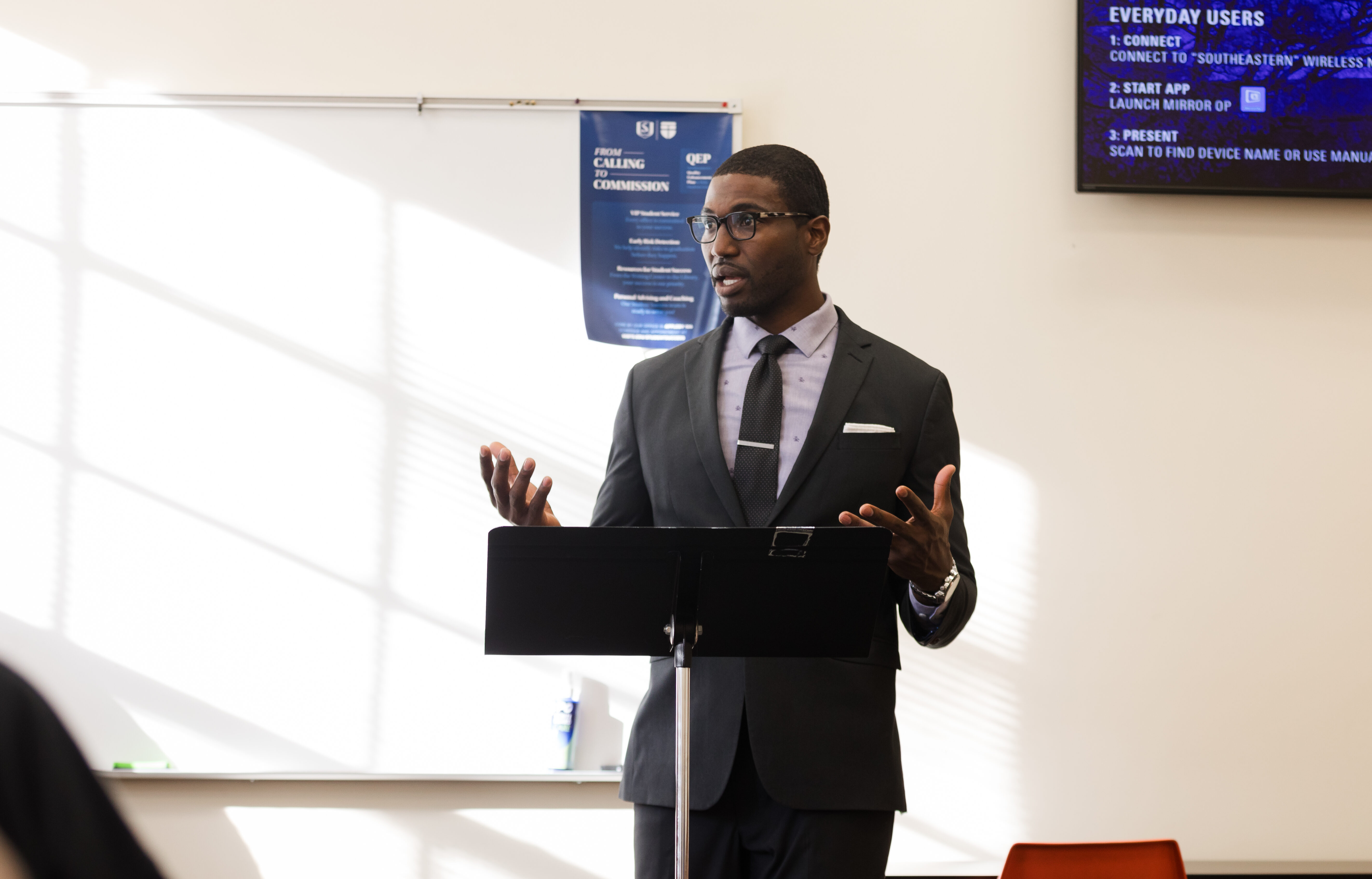The Cost of the Typewriter
Lewis could always be a bit of a curmudgeon. He preferred classical church music over congregational hymns. He never learned to drive a car, preferring trains and walks to the automobile. A bachelor until late in life, Lewis found the rhythms that served him well and rejected what got in the way. The banged-up Royal Typewriter in his house belonged to Warren, Lewis’s older brother, who would type manuscripts that Lewis wrote or some part of The Lewis Family Papers. Students who visited and went through tutorials with Lewis recount the clacking of the typewriter from Warren in the next room.[2]
For Lewis, the infernal clacking the typewriter cost him too much, namely, the rhythm of writing. Lewis wanted his writing to sound good and please the reader; the quiet and slowness of the pen gave him time to find fitting the phrases that adorn his works. Readers of Lewis, including myself, love his writing because of how he uses words. We would all do well, whether writers or preachers, to learn the rhythm of words like Lewis.
Does that mean that we should get rid of our laptops and phones and return to the pen and paper like the master wordsmith? Yes, that is, if the technology snuffs out our creative work that benefits others. That’s the point of Lewis’s advice to the young woman about writing; technology gives but also costs. Logos can help you prep a sermon, but it cannot cause your heart to burn with passion from the text. Like Lewis, we need to be aware of the trade-offs that we make with technology. We may gain resources or time, but what if the time we save robs us of the space needed to create with excellence?
The Time to Think
Lewis appreciated the pen’s timing. The time it took to write each word allowed him to create sentences and stories that engaged the readers. Every technology has a trade-off. Electricity provides so much that we need daily, yet it creates difficult decisions. Without electricity, we would not have the idea of “pulling the plug” for someone in end-of-life care. Cars make travel far easier, but the expanding roads cost us the beauty of cities like Oxford and Edinburgh.
Perhaps the typewriter had another cost for Lewis that he did not share with the schoolgirl. Lewis was a notorious pipe smoker; his pupils recount Lewis smoking like a chimney filling the atmosphere with tobacco clouds. There can be little doubt that Lewis smoked his pipe while he wrote, and the typewriter required two hands, leaving no hand for his pipe.
Whether we like smoking or not, you cannot deny the power of nicotine. Steve Leavitt, a well-known economist, experimented with the power of nicotine by going on nicotine gum for a year and tracking the results.[3] Nicotine makes the brain fire in a way that other substances cannot. I wonder if we get Lewis as a prolific writer without some aid from the nicotine that filled his pipe tobacco. But even the old technology of comsuming nicotine comes with a cost; Lewis died at 64 of a collection of issues, all associated with smoking. The pipe he loved for thinking might have cost him time to think.
Lewis shows us the cost of technology, even an old one. His exampledoes not set any rule, instead he demonstrates theneed to walk in the way of wisdom. We ought to consider what technology might cost us. As artificial intelligence grows, there will be opportunities and costs. Pastors and ministry leaders need to understand both before embracing it. It may give you ideas and information faster than the process of digging through books would be, but it can cost you your creativity. Door Dash can deliver your dinner, but it may cost you the joy of making a meal for your family and friends. Social media can extend the reach of your gospel work, but can cost you your attention. What’s your typewriter? What’s your pipe? Take some time to reflect on what it means to walk in the way of Christ regarding technology wisely.





No comments have been added.